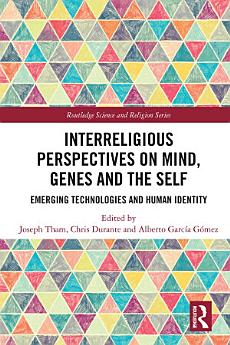Interreligious Perspectives on Mind, Genes and the Self: Emerging Technologies and Human Identity
About this ebook
The book features bioethics experts from six major religions: Buddhism, Confucianism, Christianity, Islam, Hinduism, and Judaism. It includes a number of distinct religious and cultural views on the anthropological, ethical and social challenges of emerging technologies in the light of human rights and in the context of global bioethics. The contributors work together to explore issues such as: cultural attitudes to gene editing; neuroactive drugs; the interaction between genes and behaviours; the relationship between the soul, the mind and DNA; and how can clinical applications of these technologies benefit the developing world.
This is a significant collection, demonstrating how religion and modern technologies relate to one another. It will, therefore, be of great interest to academics working in bioethics, religion and the body, interreligious dialogue, and religion and science, technology and neuroscience.
About the author
Joseph Tham teaches bioethics at Pontifical Athenaeum Regina Apostolorum, Rome, Italy, and is the former Dean of the School of Bioethics. He is a Fellow of the UNESCO Chair in Bioethics and Human Rights.
Chris Durante is an Assistant Professor in the Department of Theology at Saint Peter’s University in New Jersey, USA, as well as a Fellow of the UNESCO Chair in Bioethics & Human Rights, where he serves as the Academic Coordinator of the Bioethics, Multiculturalism & Religion workshops.
Alberto García Gómez is the director of the UNESCO Chair in Bioethics and Human Rights, Rome, Italy. He is Professor of Philosophy of Law and International Law at the School of Bioethics of Pontifical Athenaeum Regina Apostolorum in Rome. Furthermore, he is a researcher of the Human Rights Institute at Complutense University.






